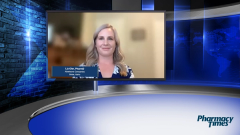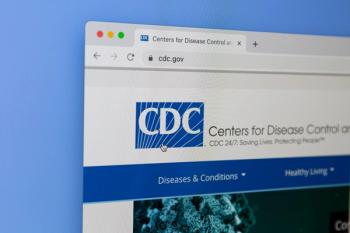
Helping Communities Catch Up on Recommended Immunizations
Suzanne Soliman, PharmD, BCMAS, discusses how pharmacy can help communities catch up on missed and overdue immunizations resulting from the COVID-19 pandemic.
Episodes in this series

Ed Cohen, PharmD, FAPhA: I’m going to move on to the next point. Let’s go back to talking about the pandemic and some of the effects that it had on our patients, our customers, and ourselves. Many of our patients and customers, including some of us, may have delayed routine medical visits. I know there has been a lot of discussion in the literature about parents delaying routine vaccinations for their children, and there are a lot of missed and overdue immunizations. We’d like to take a few minutes to talk about pharmacy’s role in helping with that catch-up, if you will, of missed and overdue immunizations. Susie, if you’d like to start this conversation, we’d like that.
Suzanne Soliman, PharmD, BCMAS: Sure. I think that the catch-up rates of children who have missed immunizations I’m reading about are almost 15%. It’s a crazy time right now. I think one way pharmacy can get more involved is that with the pandemic, a lot of daycares and schools that were checking on immunizations have shut down, and a lot of parents are using nannies or options at home, so nobody’s checking on vaccinations. I think one way is to get more involved with the public health systems in our own towns, within our own communities, by serving on some of the public health boards for our towns. That can help make a difference in some of the schools, and with some of the children. I think pharmacists can get a lot more involved in that. Most of the communities I see, at least in my state, are filled with physicians and nurses on the boards of health, but there are few pharmacists on these boards. I think we could make a difference that way because immunizations for children have been impacted, and we don’t want to end up with other issues that you are all aware of. That’s definitely one way to do it. Most schools have already issued their plans for the fall. I know schools, at least in my district, have released what is mandatory in the fall, whether it’s wearing masks or everything else that goes along with it. I think immunizations should be on the plan so pharmacies can get more involved in potentially working with them. There are pharmacists in my community who have partnered with some of the schools, offering immunization clinics at the school, so that’s another way pharmacies can get more involved with helping individuals catch up, especially when thinking about children. They were saying it’s children in the age group older than 2, but still young enough, who are lacking immunizations. I think catching those kids up is going to be critical.
Ed Cohen, PharmD, FAPhA: Liz or Jen, as pharmacists and moms, how are you viewing pharmacy? Liz, in your practice across multiple states, are you involved in that catch-up? Do you have a message you’re giving your staff to promote the service and help in that regard?
Liz Oler, PharmD: Absolutely. We’ve worked hard at providing additional training, especially as I mentioned, during the PREP [Public Readiness and Emergency Preparedness] amendment with our expanded abilities to prescribe and administer. We provided a lot more training to our pharmacists who hadn’t previously been able to administer to that age group, or those types of vaccinations. We’ve been trying to get general awareness out there. Working with the school districts is a great way we’ve tried to partner and grow, so they know what we can offer. We’re seeing that come full circle now because the school districts are starting to identify the need for catch-up. In conversations we’re having for upcoming flu seasons and whatnot, a lot of them are interested in, “How can we get our students caught up? Can we continue to use the pharmacy?” To Jen’s point, this goes back to advocating in your states for schools to use our pharmacies, and to be able to help these immunizations rates, whether it’s coming onsite to do a flu clinic and anything else they need to get caught up on, or it’s coming to our 4 walls and getting immunizations that way. It’s another advocacy point for the profession, to get kids caught up because we still see constraints on pediatric offices and family practice offices that are trying to take care of all of their patients during this time. That’s what I would add.
Transcript edited for clarity.
Newsletter
Stay informed on drug updates, treatment guidelines, and pharmacy practice trends—subscribe to Pharmacy Times for weekly clinical insights.
































